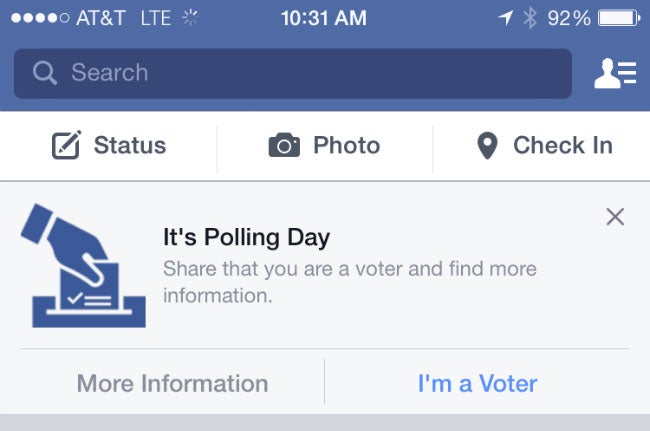The Facebook paradox: an overload of information narrows the mind
Twitter became an echo chamber of dismay, disbelief and expletives

There are times in the life of every Facebook user when it feels like you are the only person in the world not doing something. Those days when you log on in your tracksuit, over a bowl of Shredded Wheat, and everyone else is getting promoted or going on holiday, having a wedding or having a baby, running a marathon or climbing a mountain.
They’re not of course – it’s just those are the moments people choose to post, for entirely obvious reasons. And then you do exactly the same when your big life events, or events with major “Like” potential, roll around. And when that happens, you don’t give a thought to all the people on Facebook not posting anything. That’s just how it works. A big old parade of selfies, solipsism and the occasional link to something you heartily agree with, or have written yourself.
True moments of collective feeling are rare on Facebook. It’s not like Twitter where swathes of strangers get excited over a hashtag or an (ex) MP tweeting his own name; or Instagram where clever memes of Rihanna’s dress or a Kardashian bottom can rack up 100,000 hearts in a moment. On Thursday, though, there was an upswell of sorts. The site added a 2015 General Election button which you could click to show that you had cast your vote. “Alice Jones is – Union Flag icon – voting in 2015 General Election.” Some people tagged their location and added Polling Station selfies – for this is 2015 and this is how we vote now.
It was a bit silly, perhaps, and a lot self-involved. Look at me! Voting in my Ray-Bans! With my cute dog/ baby! In my leafy constituency! But it thrilled my heart. If you’re going to show off, I’d take voting brags over Glastonbury brags or baking brags any day. I liked the sense of excitement after weeks of being told that no one was engaged, that the campaign lacked fire. I also liked that a good deal of my friends seemed to be voting in line with me. That was the best bit. It felt good, hopeful, positive.
And that is where I made a major mistake: to believe what I saw on social media. Not everyone is flying first class or signing a book deal every day and similarly, though my feed was filled with those little flags, not everyone in the country was voting: 34 per cent of the population did not. And not everyone in the country was voting in line with me either; hardly anyone was.
It was even more noticeable on Twitter which, after the 10pm exit poll, became an echo chamber of dismay, disbelief and expletives. Labour had a landslide victory on Twitter alright – or at least on my feed. Of course they did, because I have chosen to follow the people I like, admire and share interests with. But the lack of dissenting voices anywhere on my news feeds was a stark reminder that social media, far from broadening minds, can narrow them horribly. It’s a mirror of our lives, yes, but it’s a funfair one, where everything appears bigger or smaller, prettier or uglier than it is in reality.
This week Facebook released a study – “Exposure to ideologically diverse news and opinion on Facebook” – based on 10.1 million American users of the site. It looked into the effect of the site’s maligned algorithms, which filter links according to what it thinks your beliefs and interests are, and what it thinks you might want to read. It found that Facebook does “sift” on users’ behalf. If you are a liberal, a conservative article is 8 per cent less likely to make it into your news feed than a liberal one; if you’re conservative, you are 5 per cent less likely to see liberal news. Facebook does not ask permission to filter the information that reaches its users, it just does it.
This sifting, combined with the “social algorithms” of our friends, who are selected by us and are probably quite similar to us, and the fact that we probably only click on links that we are interested in or agree with, means that we are seeing less not more. Our point of view is shrinking.
Is this worse than the old days, when a person might read one newspaper whose politics he or she broadly agreed with, then talk to family and friends, who shared their viewpoint? I think it is. Because we feel like we’re getting more information, that we’re better informed, that we are drowning in information, holding it in the palm of our hand. In fact, the more time we spend online, the more slippery our grip on reality gets.
Join our commenting forum
Join thought-provoking conversations, follow other Independent readers and see their replies
Comments
Bookmark popover
Removed from bookmarks